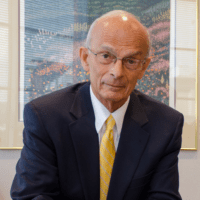When sexual harassment of an employee does not result in any adverse employment action (i.e. termination, demotion, etc.), an employer can avoid liability if: a) it exercised reasonable care to prevent and promptly correct any sexually harassing behavior; and b) the employee unreasonably failed to take advantage of any preventive or corrective opportunities provided by the employer to avoid the harm. Although the United States Court of Appeals for the Third Circuit (which includes Pennsylvania) recently acknowledged that it has routinely found that the passage of time coupled with an employee’s failure to take advantage of the employer’s anti-harassment policy is unreasonable, it now seems to have softened that approach in light of the recent #MeToo movement.
In a recent Third Circuit case, the Court addressed a scenario where an employee was sexually harassed by her male supervisor for four years but did not report the harassment to others pursuant to the County’s anti-harassment policy. During her deposition, the employee explained the reasons for her failure to report. First, the employee claimed that she feared reporting the claims to the County administrators because her supervisor repeatedly warned her that she could not trust the Commissioners. Second, the employee claimed that her supervisor had also made inappropriate advances towards other female employees, but was only slapped on the wrist and “it went nowhere.”
Although the District Court dismissed the employee’s Title VII sexual harassment claim prior to trial, concluding that no reasonable jury could find that the employee acted reasonably in failing to avail herself to the protections of the employer’s policy, the Third Circuit Court disagreed. Instead, the Third Circuit Court indicated that it could not ignore the employee’s testimony as to why she did not report her supervisor’s conduct, and believed that a jury could find that she did not act unreasonably under the circumstances. According to the Court, workplace sexual harassment is highly-circumstance-specific, and under circumstances such as those being presented, the reasonableness of an employee’s conduct should be left for the jury to determine at the time of trial.
Furthermore, in a footnote apparently supporting its decision with the #MeToo movement (but without any direct reference to the same), the Court went on to state:
This appeal comes to us in the midst of national news regarding a veritable firestorm of allegations of rampant sexual misconduct that has been closeted for years, not reported by the victims. . . In nearly all of the instances, the victims asserted a plausible fear of serious adverse consequences had they spoken up at the time the conduct occurred. . . While [the defense to sexual harassment] places the onus on the harassed employee to report her harasser, and would fault her for not calling out this conduct so as to prevent it, a jury could conclude that the employee’s non-reporting was understandable, perhaps even reasonable.
So what are some key takeaways to be learned by employers from this recent Third Circuit decision? First, don’t assume that you’ve done enough merely because you have an anti-harassment policy in place. The only way to avoid being held responsible for sexual harassment is to actually take steps to prevent it from happening. Additionally, don’t wait for your employees to take the time to make a complaint. As stressed by the Third Circuit Court, oftentimes victims of sexual harassment do not desire to report misconduct because they don’t want to get the harasser in trouble or fear repercussions. If your managers or human resource personnel become aware of inappropriate conduct, they should take the steps necessary to stop it immediately. Lastly, if you have an incident of sexual harassment in the workplace and are not certain about how to handle it, contact legal counsel to determine what next steps are appropriate and necessary under the law.

